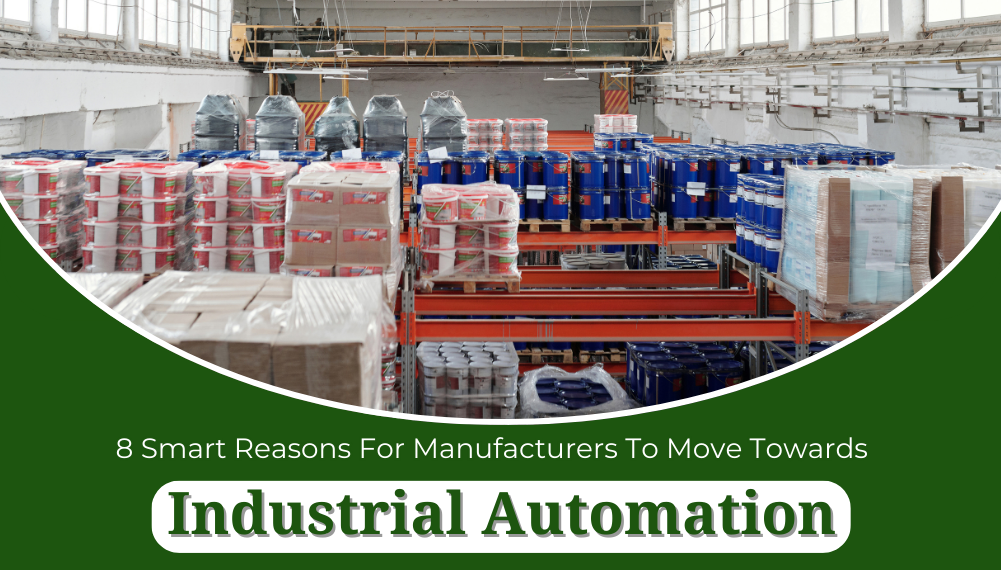Increasing product demands, especially during peak seasons can be limited by operational delays. Today’s technology is continuously advancing, and it is about time that manufacturers explore automation solutions to enhance productivity and quality. Labor-intensive industries like manufacturing and agricultural product sectors are found to be some of the most automatable.
There are many ways to integrate this into your business. Learn more about the types of industrial automation and how this can streamline your most complex processes.
Types of Automation
- Fixed Automation: This is applicable to a repeated set of tasks that do not require constant changes. Fixed automation is programmed through computer-driven commands that allow it to perform tasks, receive and send notifications, and measure products and distances. Beverages and bottling solutions use conveyor belts and automatic grippers to move objects, as well as cleaning and filling machines programmed with built-in cameras for monitoring.
- Programmable Automation: Robots and robotic equipment are typically used to program and carry out batch production. This type of automation can accommodate sudden changes to its code. Examples of equipment that can be programmed are batch coding machines and label printers.
- Flexible Automation: Also known as soft automation, this is suited for manufacturing different product types, like food, paper, and plastic. It does not require intricate reprogramming, but can be readily customized to suit the manufacturer’s needs. Flexible automation is applicable for food processing and warehouse automation.
- Integrated Automation: This refers to a completely automated manufacturing process, from beginning to end, with minimal human interference. It simplifies and unifies multiple processes for maximized efficiency. For example, integrated automation ties together computer-controlled systems (tracking, retrieval and storage, packaging, and inspection) with flexible and hard-coded robotic equipment.
- Process Automation: Manual production and business processing can benefit the most from process automation. It uses software, and in some cases, robotic equipment, to automate factory and warehouse workflows. This optimizes data processing, maintenance, and financial processes and other menial tasks. Examples include SAP Process Automation and collaborative robots/cobots.
8 Reasons Manufacturers Should Innovate Through Automation
1. Increased productivity
Automating the manufacturing process creates an opportunity to operate round the clock. Hiring additional workers is more costly and time-consuming. Automated processes can simplify and speed up work while complementing manual labor. This is especially beneficial during seasons with high production demand.
In order to ensure longevity of advanced manufacturing equipment, it is important to do preventive maintenance checks with experts. 24/7 operations can subject machines to wear and tear, and if not mitigated, may increase operating costs.
2. Maximized production output
Following higher productivity, more products can be manufactured as well. Industrial automation’s purpose is to streamline work. Because the process is optimized, more products can be created in a shorter amount of time. This minimizes disruptions in the flow of production, and maximizes the manufacturer’s capacity to create.
3. Reduced operating costs
Businesses can see a significant decrease in operating costs should they employ manufacturing automation techniques. When manual labor is reduced, there is a relative decrease in costs. Machine damage, however, can cause unprecedented expenses, so it is important to conduct preventive maintenance.
Meanwhile, when the factory is at its peak productivity, profit increases. Because the complex processes are simplified through automation, less energy is used in manufacturing goods. Less resources are wasted as well, allowing businesses to become more sustainable in the long run.
4. Workflow flexibility
Different businesses and products demand significant processes. Tailoring automation to suit each product type and switch between each uninterrupted refines the workflow and increases flexibility.
5. Employee safety
As a business owner, you should consider how this technological development can ensure your employees’ safety. Automation reduces employees and workers’ exposure to hazard risks. A robust system prevents accidents or mishaps expected of manual labor near moving equipment.
In addition to this, employees can be taught new skills related to industrial machine operation and maintenance to augment the existing workflow.
6. Optimized data collection
Product data can be collected more accurately and speedily for timely analysis through computer programming and advanced digitized equipment. By unifying a complicated set of processes, manufacturers can be assured that data is not lost and is readily available for interpretation.
7. Quality improvement
Product quality can improve significantly when operations are smooth. Because there are endless customization options to the whole automation process, new steps can be added, and product upgrades can be incorporated easily.
8. Advancement and competitiveness
Not only does factory optimization improve your business’ operations, but it also gives it leverage over companies that have not advanced their process yet.
Becoming a competitive business not only means having a seamless production flow, or owning the most advanced industrial machines. It also means more opportunities to experiment and develop new ideas for automation. This factor makes the manufacturer attractive to potential clients and talents.
Upgrading your manufacturing business accordingly should be carefully planned to maximize its full potential. A holistic approach to automation leads to a number of opportunities that can augment the producer and customer experience.
ALSO READ: Why You Must Consider Packaging Automation Now
Elixir is a trusted seller of advanced industrial equipment in the Philippines. Aside from distributing quality products from known brands, they provide on-site consultation and maintenance solutions for your industrial machine problems.
See our variety of manufacturing products and talk to us today for product queries.

